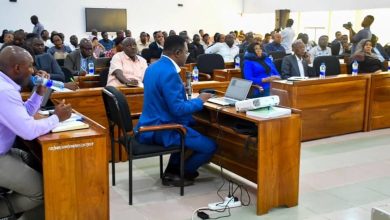Southern highlands farmers benefit from storage investment

IRINGA: SOUTHERN Highlands small-scale fruit and vegetable farmers can now reduce crop losses, thanks to a 1.0 US million dollars (2.37bn/-) investment by Delaware Agriculture Tanzania in modern, innovative refrigeration technology for fruits and vegetables.
The innovative storage solutions will enable farmers to better preserve their harvests, extending shelf life and reducing waste.
The Delaware Agriculture Marketing Manager, Mr Abhishek Dwivedi, told reporters who visited the facility over the weekend that the investment is expected to improve market access, enhance farmers’ incomes and promote sustainable agricultural practices in the region.
“We believe that technology and innovation have the power to bring about rapid change, particularly for small-scale farmers whose produce frequently spoils either in the field or before reaching the market,” said Mr Dwivedi.
Through a technology ‘Ecofrost’, a solar-powered cold storage facility, fruits and vegetables can now be preserved for longer periods, significantly reducing spoilage during harvesting and distribution.
The company plans to educate and train farmers on the importance of using refrigeration facilities like Ecofrost to minimise post-harvest losses and improve profitability.
“Considering the crucial role this technology plays in supporting farmers and promoting sustainable fruit and vegetable cultivation, we urge the government to assist by reducing customs taxes. This would allow us to import more refrigeration units and expand this essential service,” he appealed.
The initiative was initially targeting the southern highland regions of Mbeya, Njombe, Ruvuma and Iringa.
ALSO READ: Boosting yields by improving soil health for Tanzanian farmers
The company’s Financial Manager, Mr Muhammad Sohail, said that while the first refrigeration unit has been installed in the Ipogolo in Iringa Municipal, there are plans to expand the service to other regions, such as Kilimanjaro, Arusha, Rukwa, Morogoro and Tanga, as well as Kilolo District in Iringa.
“Our goal is to see a significant number of farmers benefit from this service, which is crucial for the growth of the agricultural sector and the country as a whole,” he said.
Mr Sohail said the cooling unit, powered by solar energy, has a storage capacity of five metric tonnes, with plans to expand to accommodate up to 200 metric tonnes. Currently, the facility serves 15 to 20 farmers at affordable and reasonable prices.
It is designed to create between 100 and 200 direct and indirect jobs in two years.





